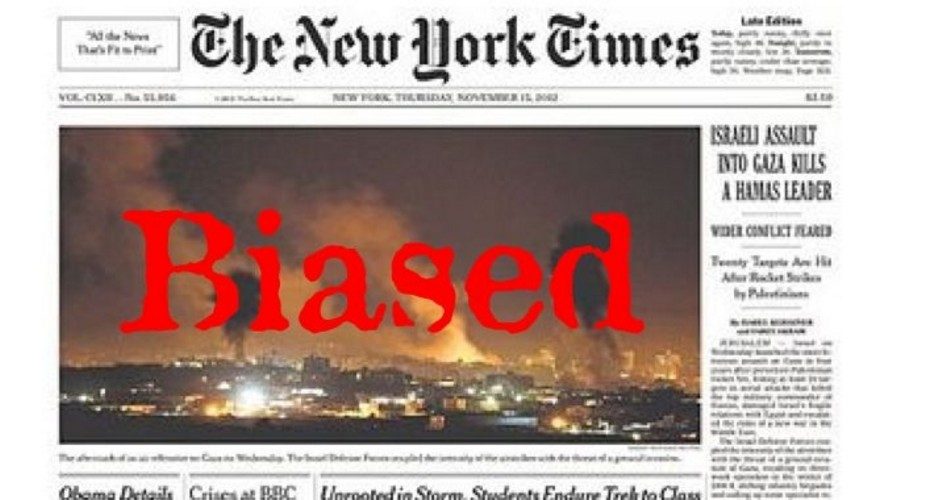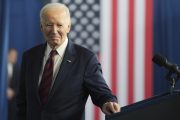
Just three days after Pew Research reported that nearly two-thirds of Americans think the news stories they read, hear, and watch are biased, along came Gallup with a similar conclusion.
Pew found that 63 percent of its respondents doubted the veracity and neutrality of the stories they get from the mainstream media, a full 10-percent decline just since 2007. Pew also reported that the mainstream media finds itself in increasing financial difficulty owing not only to increasing distrust by its readers but competition from Internet-based sources.
For instance, newspaper advertising dropped by 29 percent during just the first six months of 2016, while ad revenue on broadcast stations declined by 12 percent in the same period. Radio advertising also took a hit, falling by 23 percent from January through July.
Bill Keller, executive editor of the New York Times, used declining revenues as an excuse for its increasingly poor performance, telling CBS News that the budget squeeze “means [that] facts don’t get checked as carefully as they should.” He also took issue with just how Pew defines the “news media,” insisting:
The great flood that goes under the heading “news media” has been poisoned by junk blogs, gossip sheets, shout radio and cable-TV partisans that don’t deserve to be trusted.
The only problem with that eyewash is that the decline in media credibility began long before their finances started tanking, and even before the advent of the Internet. According to Pew, “The news media’s credibility has been eroding since 1985. Back then, 55 percent of those polled believed newspapers and broadcasters generally got things right. By 1999 that number had fallen to 37 percent,” while the latest poll found just 29 percent believing that the news they were reading could be trusted for accuracy and neutrality.
On September 14 Gallup reported, “Americans’ trust and confidence in the mass media to ‘report the news fully, accurately and fairly’ has dropped to its lowest level in Gallup polling history … down eight percentage points from last year.” Gallup first began asking respondents this question back in 1972: “In general, how much trust and confidence do you have in the mass media — such as newspapers, TV and radio — when it comes to reporting the news fully, accurately and fairly — a great deal, a fair amount, not very much or none at all?” Those responding “a great deal” and “a fair amount” hit its highest point four years later, in 1976 and has been steadily declining ever since.
Gallup showed the loss of trust is across all demographics, including age and political party. In the last year, Republicans’ loss of trust in the media dropped from 32 percent to just 14 percent, while Democrats’ fell from 55 percent to 51 percent. Independents also lost trust in the mainstream media, with their trust falling from 33 percent to 30 percent.
By age groups the media suffered credibility as well, with Americans 18-49 years old reporting a 10-percent decline in the last 12 months, while the trust in media of those 50 and older dropped from 45 percent to 38 percent.
Gallup suggested that the media’s coverage of the present national election has served to remove all doubt about its bias:
The divisive presidential election this year may be corroding Americans’ trust and confidence in the media, particularly among Republicans who may believe the “mainstream media” are too hyperfocused on every controversial statement or policy proposal from Trump while devoting far less attention to controversies surrounding the Clinton campaign.
But that “hyperfocus” just accelerated the downward trend, said Gallup:
However, the slide in media trust has been happening for the past decade. Before 2004, it was common for a majority of Americans to profess at least some trust in the mass media, but since then, less than half of Americans feel that way. Now, only about a third of the U.S. has any trust in the Fourth Estate, a stunning development for an institution designed to inform the public.
The Media Research Center confirms Gallup’s conclusion. In its January 2014 study “Media Bias 101,” MRC noted:
Surveys over the past 50 years have consistently found that journalists — especially those at the highest ranks of their profession — are much more liberal than the rest of America. They are more likely to vote liberal, more likely to describe themselves as liberal, and more likely to agree with the liberal position on policy matters than members of the general public.
Americans’ understanding of just where that bias is coming from is also increasing. Just six major corporations control more than 90 percent of the so-called news being pumped out by the mainstream media: Time Warner (CNN, Home Box Office, Time Inc., Turner Broadcasting System, Sports Illustrated, Fortune and People magazines); Walt Disney (ABC Television Network, Disney Publishing, ESPN, The Disney Channel, The History Channel and Walt Disney Pictures); Viacom (Paramount Pictures, Paramount Home Entertainment, and Black Entertainment Television); News Corporation (Dow Jones & Company, Fox Television, the New York Post, TV Guide, Fox Business Network, four units of 20th Century Fox, the Wall Street Journal, and Fox Broadcasting Company); CBS Corporation (CBS News, CBS Sports, CBS Television Network, CBS Radio, and Simon & Shuster publishers); and Comcast (NBC, CNBC, MSNBC, USA Network, and Universal Pictures).
As that understanding continues to grow, it’s possible that the liberal media bias could actually work against itself, particularly in the upcoming November presidential elections. Economist and political commentator Gary North told his subscribers:
The decline of trust [now at 30 percent] among Independents is important. It means that they have been alienated by the media’s attacks on Trump. This tells me that the Independents are ready to vote for Trump in November.
If they were pro-Hillary, their negative assessment of the media would not be so sharp. They were at 38% two years ago.
If North is right, the mainstream media has “blown its cover” in its egregious and continuous attacks on the Republican nominee — who, for the first time in decades, doesn’t belong to the establishment that controls the media.
A graduate of an Ivy League school and a former investment advisor, Bob is a regular contributor to The New American magazine and blogs frequently at LightFromTheRight.com, primarily on economics and politics. He can be reached at [email protected].
Related article:



